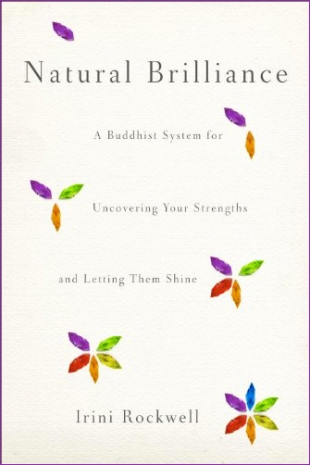Irini Rockwell presents her Five Wisdoms system of understanding self-exploration. Here is an excerpt on being present..
"Contemplative approaches to working with others, originally sourced in the Contemplative Psychotherapy Department at Naropa University, have proved to be the touchstone, the criterion and standard for working with others. The power of this training is that it brings contemplative practice and a Buddhist understanding of the process of mind to the immediacy of an interpersonal practice. The premise is that the more we work with ourselves, the more we can work with others. As we have discussed, too often we are caught in projections and fail to see who the other person is and what he or she brings to us. So the primary training is to plumb the depths of our own psychology through direct experience. It takes a certain fearlessness to look at ourselves without self-protecting ploys. Instead, we could become extremely inquisitive. We integrate our personal practices with the interpersonal practices of psychotherapy, counseling, and coaching. Our success in working with others depends on how deeply we know ourselves."
If you have patience with people, they will slowly change. You do have some effect on them if you radiate your sanity.
— Chogyam Trungpa
"Cultivating an authentic presence and practicing energetic exchange and unbiased perception makes us available to track and guide another's journey. We fully enter the other's world and appreciate his or her situation for what it is. Within a container of intrinsic sanity, maitri, and compassion, insights about the other arise. This way of working is in contrast to most Western psychiatry, which works primarily with diagnosing and curing pathology. Focusing on pathology undermines sanity whereas aligning with sanity makes it a most powerful healing agent: we stay open to whatever arises as workable. So Five Wisdoms training for psychotherapists is the most in-depth. When people have firsthand experience of their own psychological process and energetic makeup, they become better prepared to tune in to others' states of mind. This approach takes courage and daring. It is powerful because it is a shared exploration. Ultimately, we cultivate a friendship, a genuine connection based on mutual appreciation."
The feedback I get from people being cared for by someone practicing mindfulness is that they feel seen as people, apart from the medical or mental problem. . . . Mindful caregivers are able to listen more, talk less, and utilize a more sophisticated understanding of non-verbal communication.
— Judith Lief, author of Making Friends with Death
"At the time my sister was put under the care of San Diego Hospice, Dr. Charles Lewis, a meditator, was on her team. He is the medical director of both the Inpatient Care Center and their Institute for Palliative Care. I was present at the intake interview. He radiated a calm presence and, from his questions, you felt that he was seeing a whole person. In the two hours he spent with her and later in my conversations with him, he was attentive to every nuance my sister displayed. He created a healing environment not only for my sister, but also her caregiver, Jenna, and myself."
My working definition of healing is coming to terms with things as they are. That's very different from curing. With curing there is the expectation that things will be restored to the way they were before.
— Jon Kabat-Zinn, PhD, Center for Mindfulness in Medicine, Health Care, and Society at the University of Massachusetts
"As we have seen, the most fundamental principle is that all human beings have inherent sanity, are fundamentally good, and naturally possess dignity and intelligence. Inherent sanity is a genuine experience that is simple and direct. It is close to us: we can experience it, touch into it, all the time. Once recognized, it can be encouraged and cultivated. Feeling our lives fully and thoroughly, we appreciate that we are genuine, true human beings. Then we can develop the ability to recognize intrinsic sanity in others. With this approach, our neurosis and confusion become more superficial issues and less of a problem."
